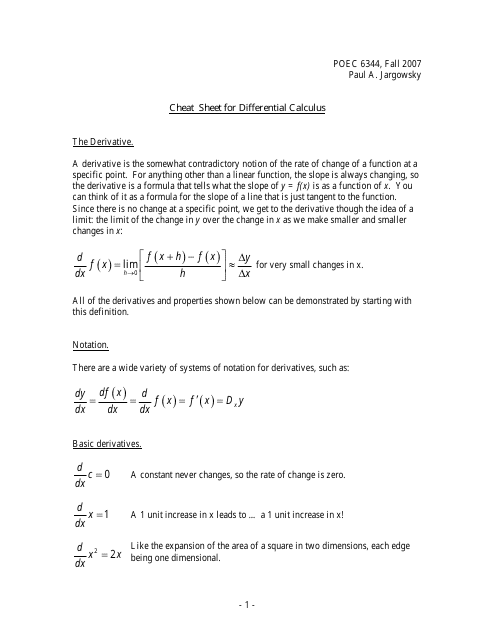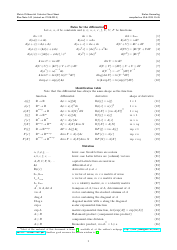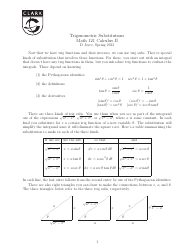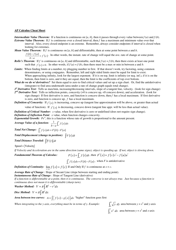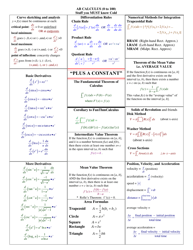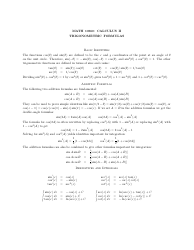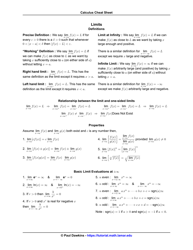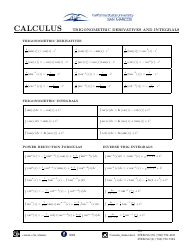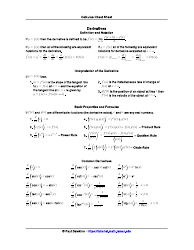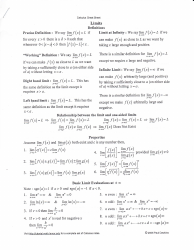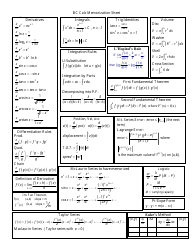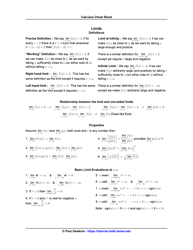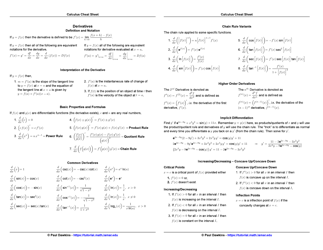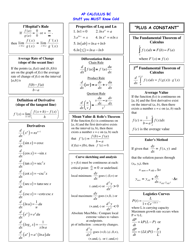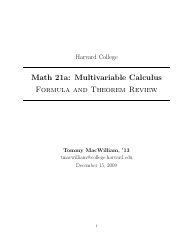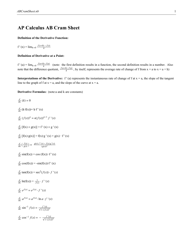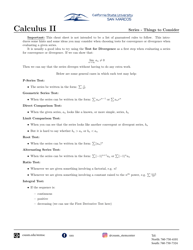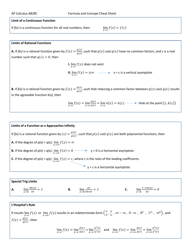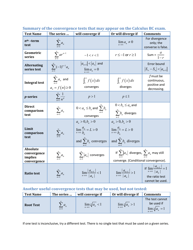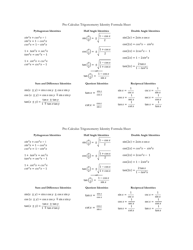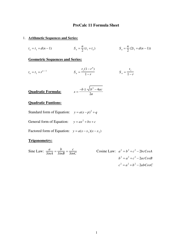Differential Calculus Cheat Sheet - Paul a. Jargowsky
The Differential Calculus Cheat Sheet by Paul A. Jargowsky is a helpful resource for students studying differential calculus. It provides concise and organized information to assist students in understanding and applying key concepts and formulas in the subject.
FAQ
Q: What is differential calculus?
A: Differential calculus is a branch of mathematics that studies how things change.
Q: What are the basic concepts in differential calculus?
A: The basic concepts in differential calculus are derivatives and limits.
Q: What is a derivative?
A: A derivative is a measure of how a function changes as its input changes.
Q: What is a limit?
A: A limit is the value that a function approaches as its input gets arbitrarily close to a certain value.
Q: What are some common applications of differential calculus?
A: Differential calculus is used in various fields such as physics, engineering, economics, and computer science to model and analyze change.
Q: What is the chain rule?
A: The chain rule is a rule for computing the derivative of a composition of functions.
Q: What is the product rule?
A: The product rule is a rule for computing the derivative of the product of two functions.
Q: What is the quotient rule?
A: The quotient rule is a rule for computing the derivative of the quotient of two functions.
Q: What is the power rule?
A: The power rule is a rule for computing the derivative of a function raised to a constant power.
Q: What is the mean value theorem?
A: The mean value theorem states that if a function is continuous on a closed interval and differentiable on the open interval, there exists a point within the interval where the instantaneous rate of change of the function is equal to the average rate of change.
